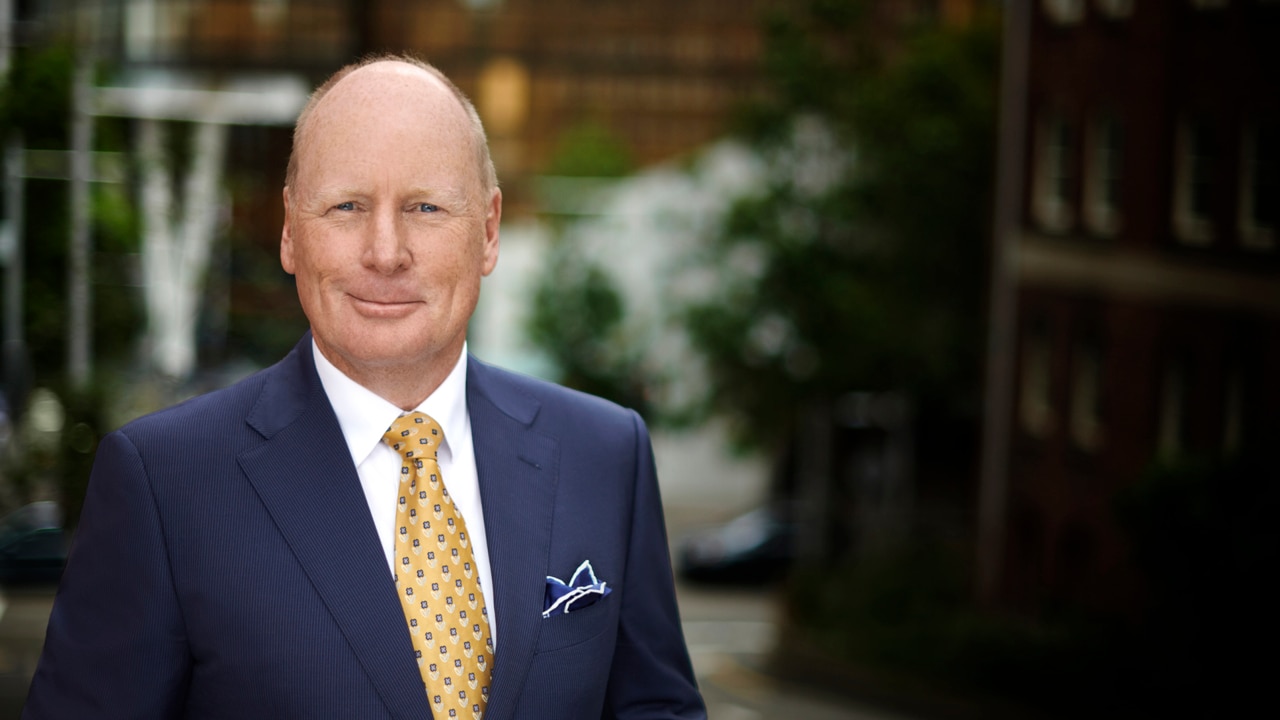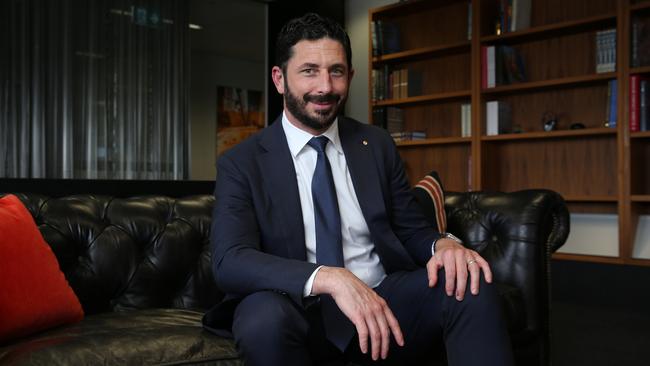Stokes family swoops on Boral with $3.1bn takeover play
The billionaire family has staged a takeover to win full control of Boral, Australia’s largest building products operator, with a plan to fold the company into its Seven Group empire.

The billionaire Stokes family has staged a takeover to win full control of Boral, Australia’s largest building products operator, with a plan to fold the company into its Seven Group empire to capitalise on booming infrastructure and housing demand.
The move surprised the market because Seven Group sold 1 per cent of the company late last year for an average price of $4.90, but is now offering as much as $6.25 in shares and scrip to buy the 28.4 per cent of the company it doesn’t already own.
Seven Group grabbed control of Boral in 2021 after a lengthy $8bn takeover battle. It quickly sold $US4bn ($6.1bn) of US assets and appointed Vik Bansal as chief executive with a mandate to refocus on its domestic cement, concrete and asphalt operations.
Fund manager Jun Bei Liu from Tribeca Investment said it was clear that Mr Bansal had turned the company around much more quickly than the Stokes family had expected.
“It’s a reflection of Seven Group being positively surprised on how quickly Vik has managed to actually turn around the business,” said Ms Liu. “The momentum within the business is really picking up. The guidance going forward is very strong.”
Last week, Seven Group beat market expectations for its half-year earnings and forecast “mid to high-teen EBIT growth” for the fiscal year on the back of consistent, strong results from its biggest earner, the WesTrac Caterpillar dealership, and a huge jump in profits from Boral.
Boral is improving its status within the conglomerate, overtaking Coates Hire at the half-year to become the second biggest contributor to EBIT with a 111 per cent increase on the previous corresponding six months, to $201m. That figure is almost as much as it contributed to the entire 2023 earnings.
Boral produces almost half of the nation’s cement.

Now Boral shareholders – excited by the construction group’s forecast profit upgrade for the full year and rising cash flows – face the strong likelihood their company will be consumed by a broader conglomerate with interests across mining, media and industrials.
Seven Group only needs shareholders of 18.4 per cent of Boral to accept the deal before it can move to compulsory acquisition, and has ruled out making a higher offer within the next 12 months.
“This is a better deal for Seven Group shareholders,” said Sam Koch from Wilson Asset Management, which owns both Seven Group and Boral shares. “Minority shareholders go from owning a piece of Boral to now owning a piece of Boral but also at the same time being diluted by the rest of Seven Group’s industrial businesses.”
Mr Koch said the rest of Seven Group’s assets were “still quite attractive on their own merit” but it remained an important consideration for shareholders.
“Seven gains control of a business that has plenty more margin opportunities and plenty of free cash flow generation,” Mr Koch said.
Seven Group is offering 0.1116 Seven Group shares and $1.50 cash for each Boral share it does not already own. This represents an aggregate value of $6.05 per Boral share. If more than 80 per cent of Boral shareholders accept the offer and the Boral recommends the offer, the cash component will rise to $1.70, taking the offer to $6.25 per share. This takes the total value for the outstanding shares in Boral to as much as $3.1bn in scrip and cash.
Boral shares rose 4.6 per cent to close at $6.10 on Monday.
Its shares are up 63 per cent over 12 months.
Seven Group shares fell 0.3 per cent to $40.65 on Monday, but they are up 66 per cent over the same 12 month period.
Seven Group has argued the takeover will give shareholders access to more liquidity because its own free float could move to as much as 49 per cent if all Boral shareholders accept the deal.

In its offer letter to Boral shareholders, Seven Group chairman Terry Davis also pointed out that Seven Group Holdings had a much better track record on dividends.
“Boral has not paid a dividend for two years and through a combination of limited franking credits and a significant investment program, is unlikely to pay dividends for some time; and Seven Group has a prolonged history of paying fully franked dividends, whereas Boral’s dividends since October 2017 have only been 50 per cent franked,” Mr Davis wrote.
The Stokes family decision to grab the underperforming Boral a few years ago was described by Mr Koch as a “a stroke of genius,” and the market strongly backed its change of management.
Mr Bansal came across from Infrabuild, where he doubled profits in the period before leaving. He is also credited with turning the Cleanaway waste management and recycling business around.
Seven Group chief executive Ryan Stokes, who is the chairman of Boral, said the deal “represents an exciting opportunity to integrate Boral into SGH’s leading Industrial Services portfolio”. As to whether Seven Group could somehow sweeten the offer after ruling out raising the takeover price, Ms Liu suggested “they could potentially sweeten it up with a dividend” but apart from that, there “isn’t enough big active managers to stir it up and get a higher price”.
Seven Group said the offer was its “best and final price and will not be increased”. The company said it wouldn’t acquire Boral shares for more than $6.25 for at least 12 months following the closing of the offer. The offer isn’t subject to any minimum acceptance condition.
In response to the offer, Boral has recommended shareholders take no action. “A board committee of Boral’s independent directors has been established in order for Boral to respond to the offer.”
The independent directors noted the “continued strong performance of the Boral business and management team”, as demonstrated in its interim results and annual guidance upgrade announcement on February 9.
Boral recently raised its full-year profit expectation by 6 per cent to between $300m and $350m, which is a 16 per cent jump from its forecast in August. Interim earnings before tax more than doubled to $210m.







To join the conversation, please log in. Don't have an account? Register
Join the conversation, you are commenting as Logout